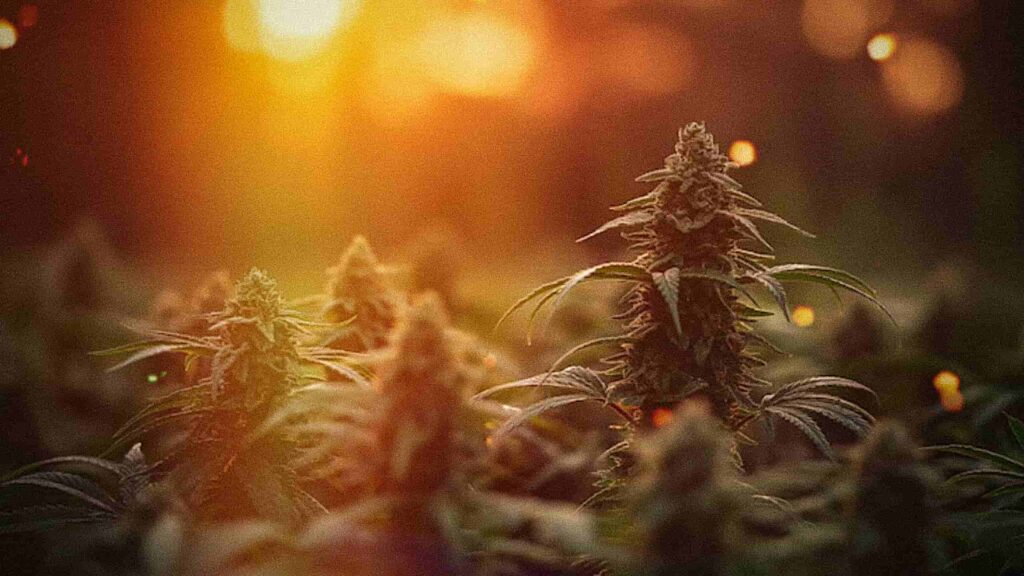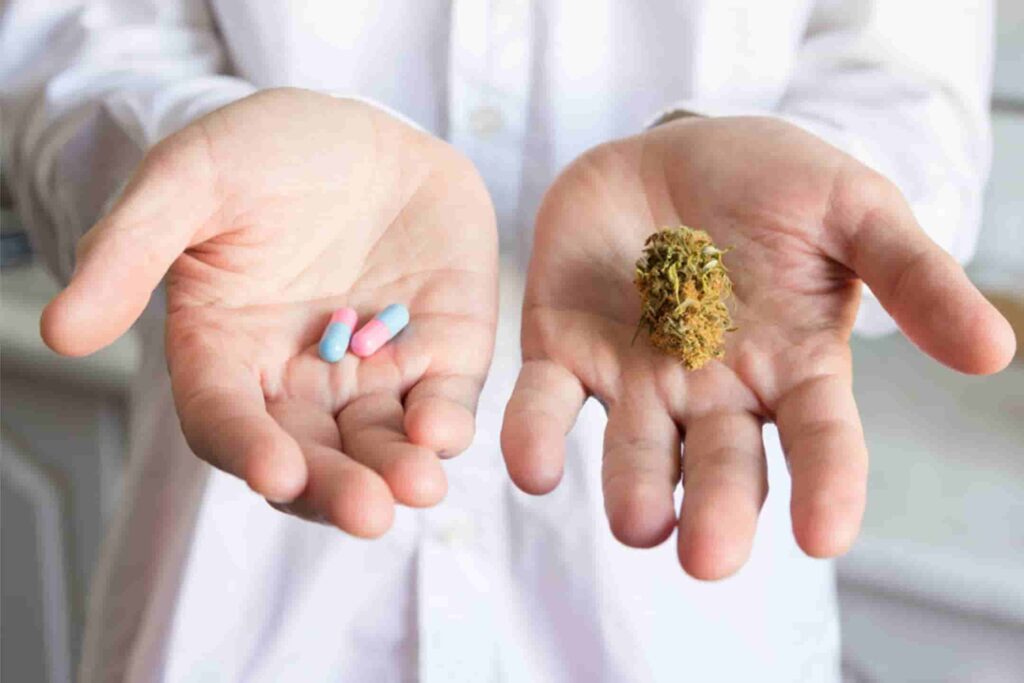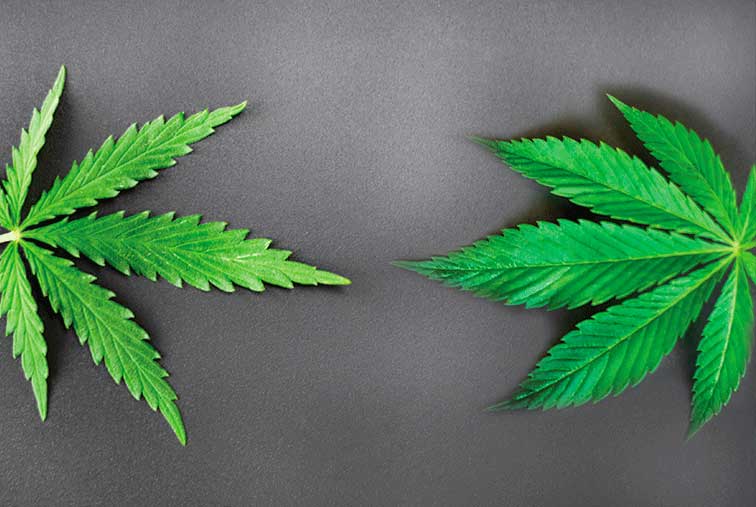How do the long-term effects of medical marijuana compare to more “mainstream” medicines?
When people talk about medical marijuana, they often focus on its immediate benefits: pain relief, relaxation, or improved sleep. But what about the long-term effects? This question becomes even more important when you compare cannabis to more traditional medications like opiates, benzodiazepines, antidepressants, and common sleeping aids. In this article, we’ll take a deep dive into the long-term effects of medical marijuana and how it stacks up against these commonly prescribed drugs.
What Is Medical Marijuana?
Medical marijuana refers to the use of cannabis plants to treat a variety of health conditions. Its therapeutic benefits are largely due to cannabinoids, the active compounds in cannabis. The two most studied cannabinoids are tetrahydrocannabinol (THC) and cannabidiol (CBD). THC is responsible for the “high” often associated with marijuana, while CBD is known for its anti-inflammatory, pain-relieving, and calming effects without causing intoxication.
Cannabis is commonly used for chronic pain, anxiety, insomnia, epilepsy, and even nausea from chemotherapy. However, like all medications, cannabis comes with its own set of potential long-term effects.
Long-Term Effects of Medical Marijuana
Tolerance: One of the most common long-term effects of regular cannabis use is tolerance. Over time, frequent users may need to consume higher doses to achieve the same effect. This is similar to how people can develop tolerance to medications like opiates or benzodiazepines.
Dependence: While the risk of developing a physical dependence on marijuana is lower than with many prescription drugs, it’s still possible. Some users may develop cannabis use disorder, especially if they use high-THC strains regularly. However, withdrawal symptoms from cannabis are usually milder than those from opiates or benzodiazepines and may include irritability, anxiety, and sleep disturbances.
Cognitive Function: There’s been some debate about the long-term impact of cannabis on cognitive function, especially when used during adolescence. Some studies suggest that heavy, long-term use, particularly of THC-rich products, may impair memory, attention, and learning. However, these effects appear to be more significant with recreational use or high doses than with moderate, therapeutic use.
Mental Health: For individuals with certain mental health conditions, long-term cannabis use can have mixed results. While CBD may help reduce anxiety and depression, high-THC strains might exacerbate these conditions in some individuals. For others, cannabis may actually help regulate mood and reduce reliance on other medications with harsher side effects.
Respiratory Issues: Smoking cannabis over a long period may cause respiratory issues similar to smoking tobacco, such as chronic bronchitis or lung irritation. Even secondhand exposure may pose health concerns. However, these risks can be significantly reduced by using alternative methods of consumption, like vaping, edibles, or tinctures.
Now, let’s take a closer look at how cannabis compares to more mainstream medications in terms of long-term effects.
Cannabis vs. Opiates
Opiates like morphine, oxycodone, and fentanyl are commonly prescribed for chronic pain. While they can be very effective in the short term, they come with serious risks, especially when used long-term.
Addiction and Dependence: The biggest concern with opiates is their high potential for addiction and dependence. Long-term opiate use often leads to tolerance, requiring higher doses for the same pain relief. Over time, many people become physically dependent on opiates and may experience withdrawal symptoms if they stop using them. In contrast, while cannabis can cause dependence, the risk is significantly lower.
Overdose Risk: Opiates carry a high risk of overdose, which can be fatal due to respiratory depression (slowed or stopped breathing). This is a major problem in the ongoing opioid crisis. Cannabis, on the other hand, has no known lethal dose. While it’s possible to consume too much cannabis and feel uncomfortable, the effects are temporary and not life-threatening.
Organ Damage: Long-term opiate use can damage the liver, kidneys, and other organs. Cannabis doesn’t have the same toxic effect on vital organs, making it a safer option for chronic pain management in the long run.
Cognitive Impact: Both opiates and cannabis can impact cognitive function. Long-term opiate use may lead to memory problems, drowsiness, and poor decision-making. Cannabis can also cause memory issues, but its cognitive effects tend to be milder, especially with strains that are high in CBD.
Cannabis vs. Benzodiazepines
Benzodiazepines like Xanax, Valium, and Ativan are often prescribed for anxiety and sleep disorders. However, they come with long-term effects that can be problematic.
Addiction and Tolerance: Benzodiazepines are highly addictive. Like opiates, long-term users often need to increase their dose over time to achieve the same effect. Quitting benzodiazepines after long-term use can lead to severe withdrawal symptoms, including seizures. Cannabis, while not entirely free of withdrawal risks, tends to have milder symptoms that can be managed more easily.
Cognitive Decline: Long-term benzodiazepine use has been linked to cognitive decline, especially in older adults. People who take these drugs for extended periods may experience problems with memory, focus, and problem-solving. Cannabis, while also affecting memory in some cases, does not seem to have the same severe, long-term cognitive impacts seen with benzodiazepines.
Sleep Issues: Benzodiazepines are often prescribed for sleep, but long-term use can actually disrupt sleep patterns and lead to dependency. In contrast, cannabis, particularly strains with higher CBD, has been shown to improve sleep without the same risk of dependency or long-term sleep disruption.
Cannabis vs. Antidepressants
Antidepressants like SSRIs (e.g., Prozac, Zoloft) are commonly prescribed for depression and anxiety. These medications generally require long-term use to be effective, but they also come with some significant long-term effects.
Dependency: While antidepressants are not considered addictive, people who stop taking them after long-term use may experience withdrawal symptoms, such as dizziness, headaches, and irritability. Cannabis doesn’t cause the same physical withdrawal symptoms, although psychological dependence is possible.
Sexual Dysfunction: One of the common long-term side effects of antidepressants is sexual dysfunction, which can affect libido and overall sexual satisfaction. Cannabis doesn’t have this side effect, and some people even report that it enhances their sexual experience.
Emotional Numbing: Some people on antidepressants report feeling emotionally numb or detached over time. While cannabis can also have an effect on mood, it’s often used to help people reconnect with their emotions rather than dull them.
Cannabis vs. Prescription and OTC Sleeping Aids
Many people rely on sleeping aids to get a good night’s rest, whether it’s prescription medications like Ambien or over-the-counter (OTC) options like diphenhydramine (Benadryl) or melatonin.
Dependency: Prescription sleep aids, especially drugs like Ambien or Lunesta, can lead to dependency with long-term use. People may find that they can’t sleep without them. OTC sleep aids, while generally safer, can still cause grogginess the next day or disrupt natural sleep cycles over time. Cannabis, particularly CBD, is often used as a sleep aid and has a much lower risk of dependency. However, THC-rich strains can interfere with REM sleep if used excessively.
Side Effects: Long-term use of prescription sleep aids can lead to side effects like memory loss, confusion, and balance problems, especially in older adults. OTC sleep aids may cause drowsiness, dry mouth, or blurred vision. Cannabis tends to have fewer long-term side effects when used for sleep, although some users may experience morning grogginess if they consume high doses of THC.
Natural Sleep Cycles: One concern with many sleeping aids is their effect on natural sleep patterns. Drugs like Ambien can alter REM sleep, which is important for memory and cognitive function. Cannabis can also affect REM sleep, but many users find that it helps them fall asleep faster and stay asleep longer without the same level of disruption to sleep cycles.
Conclusion
When comparing the long-term effects of medical marijuana to more mainstream medications like opiates, benzodiazepines, antidepressants, and sleeping aids, it’s clear that cannabis offers several advantages. It has a lower risk of addiction and dependence, fewer severe side effects, and a safer profile in terms of organ damage and overdose risk.
However, like any medication, cannabis isn’t without its potential drawbacks. Patients need to use it responsibly and under the guidance of a healthcare provider. At ReThink-Rx, we focus on the therapeutic applications of cannabis to help patients achieve better health outcomes without the significant risks associated with many mainstream medications.
If you’re considering medical marijuana for a chronic condition, sleep issues, or mental health concerns, we’re here to help guide you through your options and find the right approach for your needs.
Disclaimer: This article is for educational purposes only and is not a substitute for professional medical advice, diagnosis, or treatment. Always consult a qualified healthcare provider with any questions about your health or medical conditions.

Dr. Nicholas Marsh is board-certified by the American Board of Anesthesiologists and has over 37 years of healthcare experience. Recognized by FindaTopDoc.com for clinical excellence, he now focuses on educating, supporting, and certifying patients for medical cannabis.







